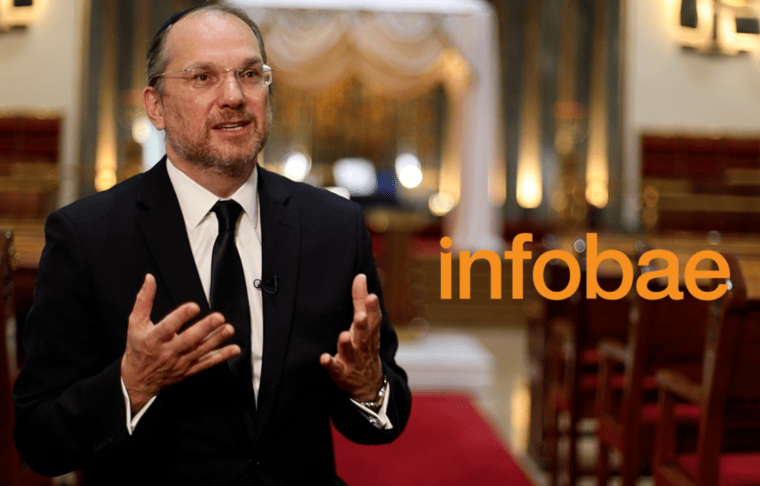Passover and the value of family

The holiday that commemorates the liberation of Israel from the hands of Pharaonic slavery teaches us that family gave the strength to survive the calamities that the Jewish people have suffered throughout their history.
By Isaac Sacca
According to Jewish tradition, from the 15th to the 21st of the month of Nissan (Wednesday, April 5, to Thursday, April 13, 2023), Pesach is celebrated. This festival commemorates the miraculous departure of the people of Israel from Egypt, after having been enslaved for hundreds of years by the Pharaohs.
On the first two nights of Passover, Jewish families throughout the world gather around a table and perform a fascinating ritual: the Passover Seder.
We read, sing and explain the Pesach Haggadah, which narrates the birth of the Israelite people marked by the Exodus from Egypt and the liberation of the people of Israel from Pharaonic slavery.
Pesach Seder is revolutionary because it is especially focused on children: questioning from love and the active participation of young people are encouraged. The objective of this evening is to instill in the new generations the value of tradition as a reference of identity and the ethics that emanates from it —such as the values of freedom, respect for the identity of each people, peace, mercy, human rights, faith in God and law as the axis of society— so that they can later become responsible adults committed to goodness.
To arouse their curiosity, we appeal to all available resources: songs, games, food, questions and answers, debates, symbols, scholarly analysis, and experiential experiences.
Passover Seder is a master class in pedagogy: it encourages people of all ages to take an interest in history and to seek to learn more about it, so they can apply the relevant lessons to their lives.
All this mechanism of pedagogy works when there is a family table —or, failing that, of friends— where this space for life experience and recreation is generated.
Imagen
The glass cabinet of the temple of the Sephardic Israelite Community Association of Buenos Aires, in the neighborhood of Villa Crespo
The accurate transmission of moral messages can occur when we all sit down as a family, around the same point of reference, and discover those values that transcend our individuality.
In a world where family is in danger, the Seder invites us to ponder its value. We meet with our loved ones to share moments with them. There lies the transmission of values, faith and positive energy that young people need to face the challenges of life.
We live in a society that tends more and more to individualism. People believe they feel more powerful with their “self-sufficiency”. However, what is happening is that a defense mechanism arises to deal with the deep feeling of loneliness and isolation. However, that self-defense mechanism cannot be sustained over time, and eventually, anguish comes to the surface and affects our person, our potential, and those around us.
It is the family —or loved ones in general— that help to cope with anguish. We cannot be alone. A stable family framework helps each person to develop his or her individuality in a healthier and more balanced way.
With the support provided by family, the human being can generate a framework for identification and transmission of values, based on unconditional love. This emotion of feeling part produces well-being and happiness, which counteracts the harmful effects of extreme individualism.
The Pesach Seder or Shabbat family meals —even daily meals— are spaces that have made the people of Israel ponder the value of family for more than 3,000 years. It is family that has kept the Jewish people strong in their culture and tradition, in their values and faith over thousands of years. It was family that gave the strength to survive the calamities that befell the Jewish people throughout its history.
The Seder is a message, a legacy for all humanity, because it is a call to ponder family experience as the supreme weapon to face challenges, to progress in life and to strengthen the spirit with values in which love for others prevails. It is a clear message that my well-being lies in the care of the other.

